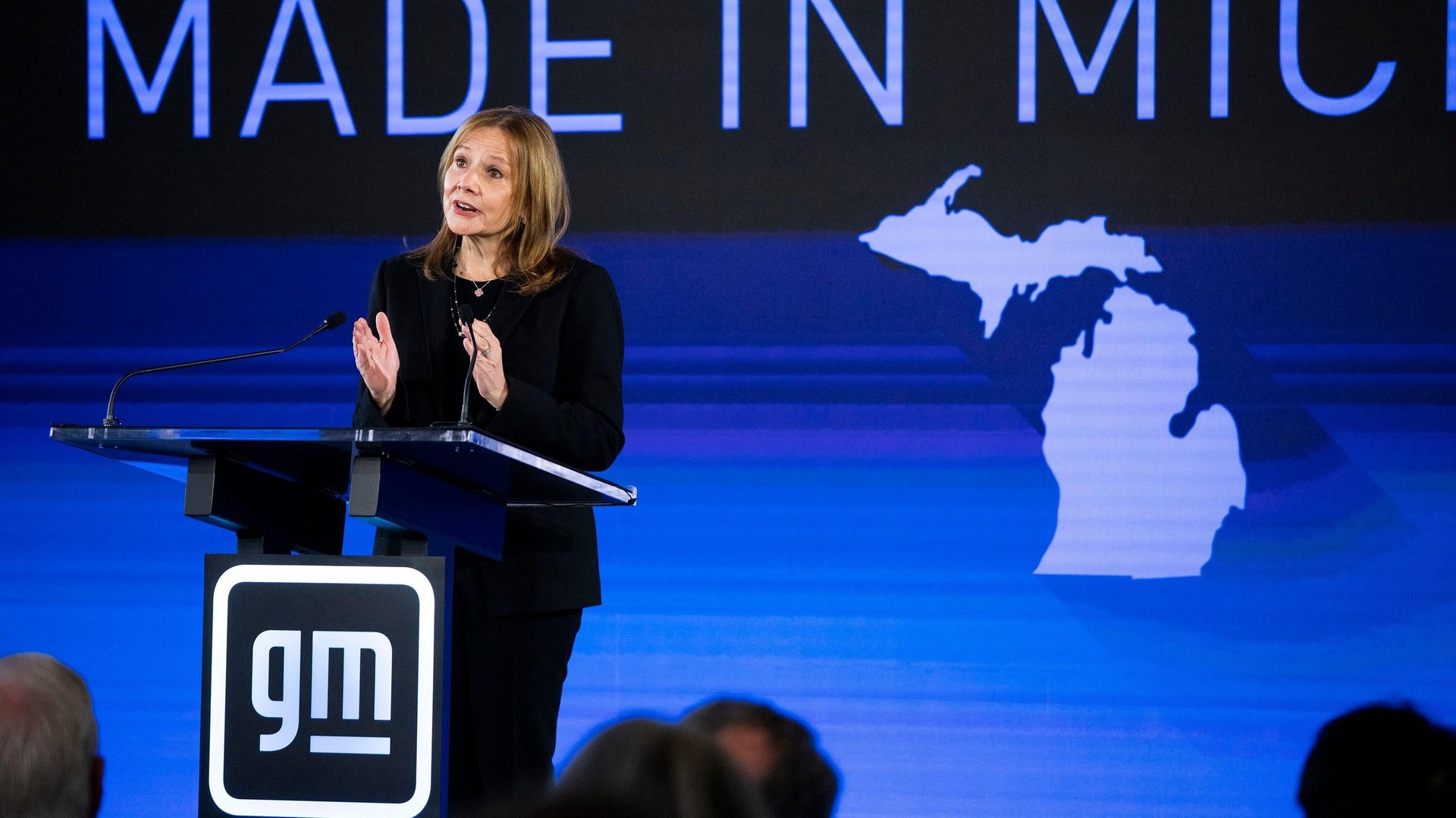GM seeks to cut jobs by offering thousands of workers the chance to get paid to quit
The automaker ran a similar Voluntary Separation Program for 18,000 US workers in 2018

General Motors is doing layoffs a little differently: It’s letting people choose to leave.
Suggested Reading
The Detroit-based automotive manufacturer is looking to downsize as part of its aim to cut $2 billion in structural costs over the next two years. But instead of handpicking the employees who get to leave and stay, the company will let a “majority” of its 58,000 US white-collar employees opt for a Voluntary Separation Program (VSP), as announced in a regulatory filing yesterday (Mar. 9).
Related Content
In doing so, the company wants to “accelerate the normal attrition process and the resulting cost savings,” it said.
What do GM employees get in the buyback?
All US salaried employees who have spent five or more years at the company as of June 30 are eligible for the automakers’ buyouts. Internationally, executives who’ve been employed for at least two years can also take part in the program.
Approved employees will be granted one-month pay for every year they worked (up to 12 months) and COBRA health coverage. They will receive prorated team performance bonuses and outplacement services, too.
The last date to sign up for the VSP is Mar. 24. Those who qualify for the package will depart by June 30.
Quotable: GM urges employees to volunteer to leave
“Employees are strongly encouraged to consider the program. By permanently bringing down structured costs, we can improve vehicle profitability and remain nimble in an increasingly competitive market.” —GM in an emailed statement to CNBC
GM’s cost-saving, by the digits
$1.5 billion: Pre-tax employee separation charges the company expects to incur in connection with the VSP, which will be substantially all cash-based
500: Salaried workers GM cut last month
18,000: The number of North American salaried GM employees offered a similar large buyout program in 2018. It was 36% of the workforce at the time
30% to 50%: The share of the $2 billion cost-saving expected to happen in 2023
81,000: Salaried employees GM employees worldwide
All the ways in which GM plans to reel back costs
The carmaker has four umbrella ideas when it comes to curbing costs:
🚗 Simplifying the manufacturing process
💰 Growth-targeting investment
✊ Decreasing discretionary spending across the company
💼 Job cuts, primarily in the United States